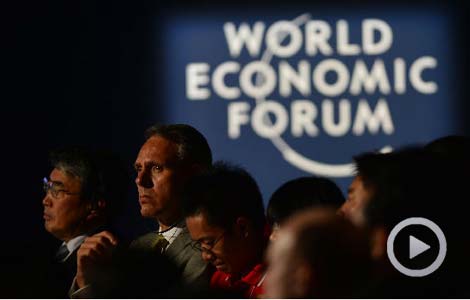US pop culture a diplomatic tool
Updated: 2013-09-17 08:19
By Zhang Xiaoli (China Daily)
|
||||||||
The two-term election of Barack Obama, the first African-American US president, has been widely hailed as a popular cultural rather than a political development in the United States. The mainstream mass media in the US have made full use of this development to push their public diplomacy goals, that is, to promote the idea that the US is a land where dreams are realized through personal efforts.
Obama's political success mirrors an important theme, that of American pop culture - self-made heroes' success stories, which have long replenished the American dream. Obama's success has greatly enhanced the US' image in Africa, something its official diplomacy had failed to do. This is a classic case of a personal success enhancing a country's global image because of its cultural connotations.
The case has found reflection in a US State Department report, Cultural Diplomacy: the Linchpin of Public Diplomacy. The report says that "cultural diplomacy is the linchpin of public diplomacy, because it is through cultural activities that a nation's idea of itself is best represented". Indeed, history is likely to record that the US' cultural riches played no smaller a role than its military might in shaping its international leadership, including the "war on terror".
The values embedded in our artistic and intellectual traditions form the bulwark against the forces of darkness. The core idea of the design and implementation of US public diplomacy is to use cultural diplomacy, exemplified by Hollywood movies, NBA games, Disneyland characters and jazz music, as the best weapon for its success.
Not surprisingly, Obama's personal success has added a "feather" to the US' cultural cap, consolidating the country's image as a land of opportunity and free choice as reflected in its pop culture. American pop culture is not only a form of entertainment. It also has, to a certain extent, played the role of public diplomacy by espousing some of the key ideas and ideals that influence people's attitude and behavior through such performing arts as movies and pop songs.
Throughout human civilization, ideas have played a key role in defining and even deciding the turn of events. The US' history shows "the ideals of the Founding Fathers, enshrined in the Declaration of Independence, the Constitution, the Federalist Papers and the Bill of Rights, take on new life in the vibrant traditions of American art, dance, film, jazz and literature, which continue to inspire people the world over despite our political differences".
The US treats official diplomacy as a form of public diplomacy conducted through cultural diplomacy; it's a new strategy of Washington. The roots of American pop culture and the way it has flourished provides some illuminating insight into the seemingly vague relations between the charm of pop culture and officiousness of its cultural diplomacy.
There is no doubt that pop culture has played a key role in cleansing the US' negative image in a good part of the world. Many non-Americans dislike the US as a nation but like its pop culture, which proves the magnetic pull American pop culture has on people across the world. Pop culture has advanced the American way of life and American values in an intangible and rather inexpensive way, which is the ultimate objective of public diplomacy. And since the US uses pop culture products and channels to conduct cultural diplomacy, there is little doubt that its public diplomacy will succeed in fulfilling the goals of its foreign policy.
The intention of this analysis, however, is not to paint a positive picture of American pop culture per se, nor is it to laud the effectiveness of American cultural diplomacy in helping its public diplomacy achieve the goals of its foreign policy. Instead, the attempt is to present an objective analysis of the intricate and interesting relationship among American pop culture and US cultural and public diplomacy and how they combine to ultimately serve the US' national interests.
US political scientist Joseph Nye has said that the best means to achieve hard goals is soft power which can be best conveyed in cultural diplomacy and that if America still wishes to restore or maintain its positive global image, public diplomacy through cultural diplomacy should occupy a high place on its foreign policy agenda.
There is a lesson here for China. In conducting and promoting public diplomacy to fulfill its diplomatic goal of maintaining a peaceful international environment, China should use its rich cultural heritage to enhance its global image as a more open and diverse society. In fact, China has an advantage over America in this respect because its cultural wealth has a much longer history and is richer than that of the US.
The case study of the US provides some enlightening examples for China to emulate to enhance its global image in the age of globalization.
The world is bound to become more diverse and colorful with heterogeneous cultural ethos and traditions of different countries coming together to co-exist through cohesive exchanges and interactions. But such cultural exchanges must be conducted on an equal footing to ensure that they make continuous contribution to the building of a harmonious world by following the principle of mutual respect, tolerance and understanding.
The author is a professor on US culture studies at China Foreign Affairs University.
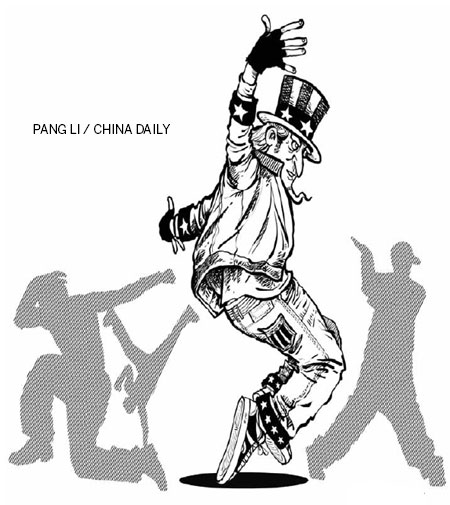
(China Daily USA 09/17/2013 page12)

 Thirteen dead in US Navy Yard shooting
Thirteen dead in US Navy Yard shooting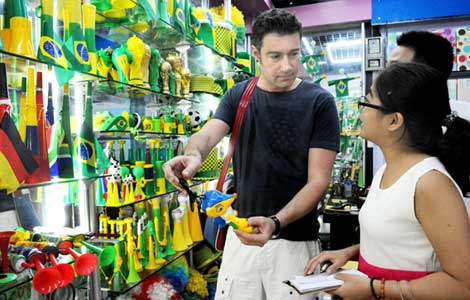
 Exporters to face more trade friction
Exporters to face more trade friction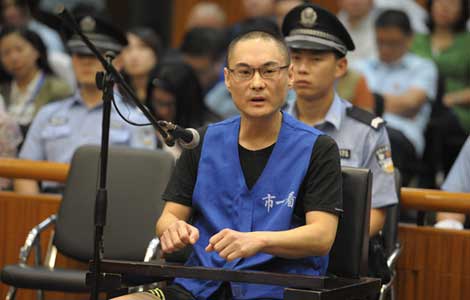
 Toddler-death defendant says he meant no harm
Toddler-death defendant says he meant no harm
 Watchdog bites with no favor
Watchdog bites with no favor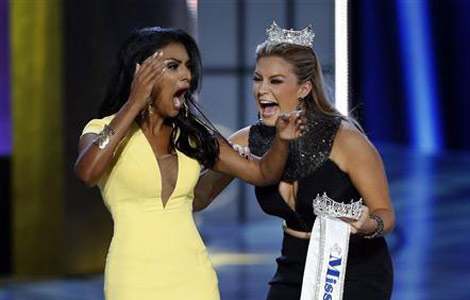
 Miss New York crowned 2014 Miss America
Miss New York crowned 2014 Miss America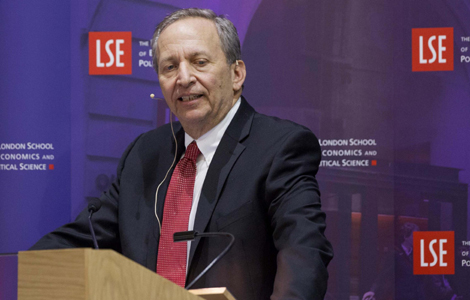
 Summers withdraws from Fed chair contest
Summers withdraws from Fed chair contest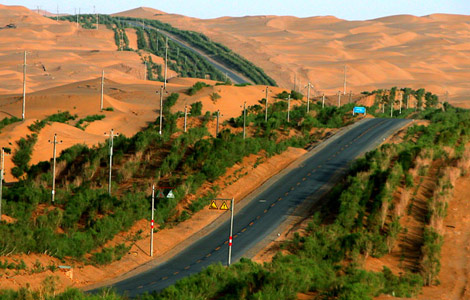
 Scientists make land arable again
Scientists make land arable again
 Stranded cruise guests flown home
Stranded cruise guests flown home
Most Viewed
Editor's Picks

|

|

|

|

|

|
Today's Top News
Trending news across China, Sept 17
BRICS pledge cooperation on climate change
CBRC set to regulate 'chaotic' WMPs
Exporters to face more trade friction
Thirteen dead in US Navy Yard shooting
China, US team up on Central Asia
UN confirms nerve gas used in Syria
Minimum growth rate set at 7 percent
US Weekly

|

|

